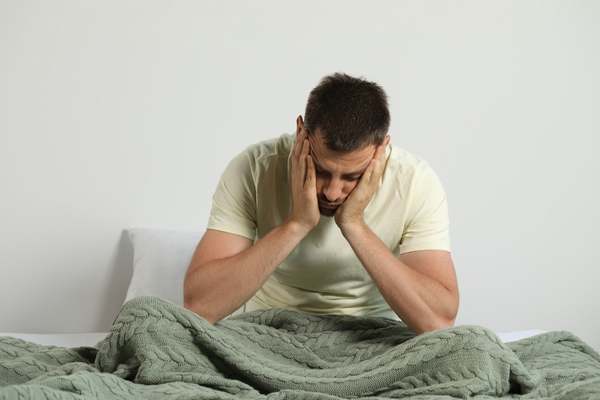Men work 40.5 hours per week on average! Work-related stress and societal pressure are major factors that contribute to low testosterone levels in men. As a result, you may experience fatigue, increased body fat, brain fog, and a lower sex drive. Throwing these issues to the wayside is a common reaction for many men, but neglecting the symptoms of stress and fatigue as work pressure and stress for too long can end up damaging your personal life.
Charleston Men’s Clinic offers testosterone treatment for men in Charleston, helping them with testosterone replacement therapy. In this article, our experts discuss how stress and fatigue can be testosterone-induced and actions that can help you mitigate the damage.
Signs of Low Testosterone Levels
Feeling tired and stressed can be indicative of dropping testosterone levels in men. Testosterone, the primary male sex hormone, plays a crucial role in regulating energy levels, mood, and overall well-being. When testosterone levels begin to decline, it can lead to various physical and emotional changes, including fatigue and increased stress. Here’s how these symptoms are linked to dropping testosterone levels:
1. Fatigue:
- Energy Regulation: Testosterone helps regulate energy production within the body. When testosterone levels decline, it can result in reduced energy and increased feelings of fatigue. This can make it more challenging to stay active and engaged throughout the day.
- Muscle Mass: Testosterone also contributes to the development and maintenance of muscle mass. A decrease in testosterone can lead to muscle loss, which may make physical activities feel more exhausting, contributing to a sense of fatigue.
2. Stress:
- Hormonal Imbalance: A drop in testosterone levels can create hormonal imbalances, including an increase in cortisol, the body’s primary stress hormone. Elevated cortisol levels can lead to heightened feelings of stress and anxiety.
- Mood Changes: Testosterone influences mood and emotional well-being. As testosterone levels decrease, some men may experience mood swings, irritability, and a reduced ability to cope with stressors effectively.
3. Sleep Disturbances | Testosterone Treatment for Men in Charleston:
- Testosterone and Sleep: Testosterone has a role in regulating sleep patterns. Lower testosterone levels can lead to sleep disturbances, including difficulty falling asleep and maintaining deep, restorative sleep. Poor sleep quality can exacerbate feelings of tiredness and stress.
4. Reduced Libido and Erectile Dysfunction:
- Sexual Function: Testosterone plays a critical role in sexual health. Declining testosterone levels can lead to reduced libido (sex drive) and erectile dysfunction, which can be emotionally distressing and contribute to stress and fatigue.
It’s important to note that while feeling tired and stressed can be potential signs of dropping testosterone levels, these symptoms are not exclusive to low testosterone. Many factors can contribute to fatigue and stress, including lifestyle, sleep patterns, diet, and mental health. Therefore, if you are experiencing persistent fatigue, stress, or any other concerning symptoms, it’s crucial to consult with a healthcare professional.
Managing Low Testosterone Levels | Testosterone Treatment for Men in Charleston
If you need help overcoming constant feelings of stress and fatigue and want to face the challenges that life throws at you with energy and vigor, Charleston Men’s Clinic has the solution. Our testosterone treatment for men in Charleston includes testosterone replacement therapy and other solutions that can help you recover.








